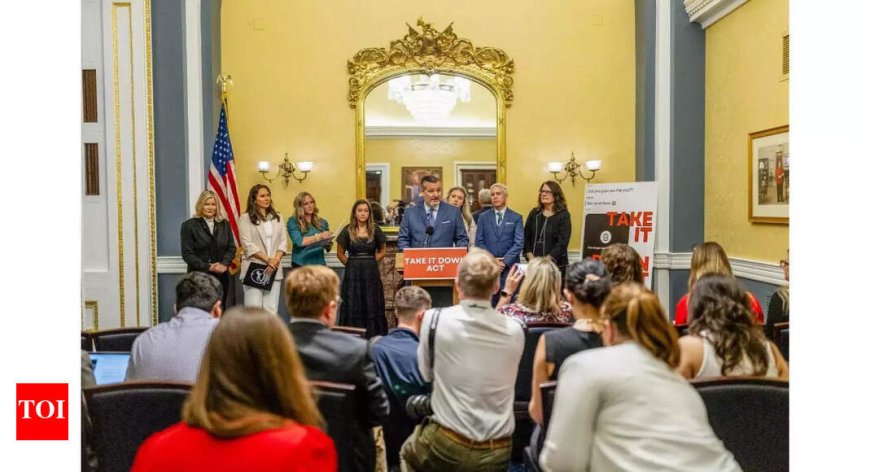US makes sharing Revenge Porn 'criminal offense' as the US House passes bill, just a step left
The US House passed the Take It Down Act, a bill championed by Melania Trump, to criminalize the nonconsensual sharing of intimate images, addressing the issue of revenge porn at the federal level. This legislation, already passed unanimously in the Senate, mandates social media platforms to remove such content within two days of notification.

US Makes Sharing Revenge Porn 'Criminal Offense' as the US House Passes Bill
In a significant move towards protecting individuals from digital harassment, the US House of Representatives has passed a bill that makes sharing revenge porn a criminal offense. This legislative action is seen as a critical step in addressing the growing concerns surrounding privacy and personal safety in the digital age. The bill now awaits approval from the Senate, with advocates urging swift action to finalize these essential protections.
Understanding Revenge Porn and Its Impact
Revenge porn, defined as the non-consensual sharing of intimate images, often leads to severe emotional distress and can have life-altering consequences for victims. Many individuals have found themselves in vulnerable situations after their private images are shared without consent, impacting their mental health, job opportunities, and personal relationships. This bill aims to curb such violations by imposing strict penalties on those who engage in such behavior.
The Legislative Journey
The journey of this bill began several months ago, as lawmakers acknowledged the urgent need to fill the legal gaps pertaining to digital sexual abuse. The passage by the House marks a crucial point in the legislative process, reflecting a growing recognition of the rights of individuals in the face of technological advancements. Advocates have emphasized that making revenge porn a criminal offense is long overdue and essential in empowering victims to seek justice.
What’s Next for the Bill?
With the House passing the bill, the next step lies with the Senate. Lawmakers will discuss and debate the proposed legislation, which, if approved, will provide law enforcement with the necessary tools to crack down on offenders. Furthermore, educational initiatives aimed at raising awareness about consent and the ramifications of sharing intimate images are expected to accompany the legislative changes. The bipartisan support for this bill suggests a hopeful trajectory towards its finalization.
Victims of revenge porn will benefit from having stronger legal recourse, and the general public will be reminded of the seriousness of consent and the implications of online actions.
Conclusion
The US House's decision to criminalize revenge porn represents a vital step in safeguarding personal privacy and dignity in an increasingly digital world. As the bill progresses, it promises to stir broader conversations about consent, privacy, and respect in the realm of digital interactions. For ongoing updates on this developing story, be sure to visit News by dharmyuddh.com. Keywords: US House bills on revenge porn, sharing revenge porn bill passed, revenge porn criminal offense legislation, non-consensual images legislation, digital privacy laws in the US, protecting victims of revenge porn, Senate approval of revenge porn law, consequences of sharing intimate images, legislative progress against digital harassment, privacy protection laws for individuals.







